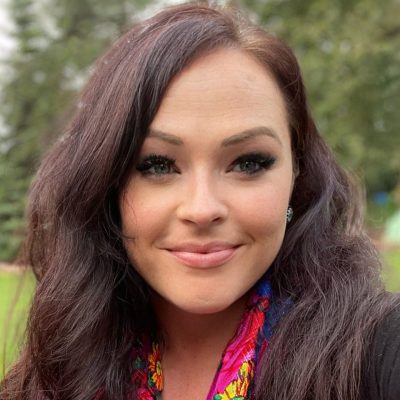Melissa Tremblay (Lac St Anne Métis Community Association)
Melissa Tremblay (Lac St Anne Métis Community Association) on Moving Beyond Partnerships to Indigenous-Led Evaluation
An excerpt from the Indigenous Insights podcast (Season 1, Episode 16)
This interview was originally released on July 17, 2023, and the excerpt has been edited for clarity.
I notice that people use that term Indigenous evaluation to describe two different things. Sometimes we use the term Indigenous evaluation to describe evaluation that’s maybe taking place in partnership with Indigenous communities or being done with an Indigenous organization or Indigenous Peoples. But doing evaluation with an Indigenous organization or Indigenous Peoples doesn’t always translate to doing evaluation in a way that incorporates Indigenous evaluation principles. So when I use the term Indigenous evaluation, I mean evaluation that prioritizes relationality, that makes space for community to take the reins and lead aspects of an evaluation, that recognizes that community has expertise in approaches, that has accountability to community at heart, and that really centers Indigenous ways of knowing.
At the core I think Indigenous evaluation is important so that stories about Indigenous peoples, communities, and programs can be told by Indigenous people themselves. And the metrics that we often use when we’re doing more conventional evaluations are often misaligned with community priorities. So we may have externally-defined targets for the number of people served, or we may use our pre- and post-program validated questionnaires to be able to say something a funder wants to understand about a program, to determine if it’s “working” or not. But those pieces of information, although they serve a purpose in approaches defined by a non-Indigenous perspective, may not be the most important ones to the people on the ground who are delivering those services, or to the people who are receiving those services. Instead, when we work in a relational way to co-create different metrics and ways of understanding a program or a project, then we can end up with understandings that mean a whole lot more to the communities that we’re working with, I think.
Invitation to Thought
Melissa calls for evaluation that prioritizes relationality and accountability to Indigenous communities, rather than simply partnering in name.
- In your work, how can you move beyond partnership toward genuinely Indigenous-led evaluation?
- What does accountability to community look like in practice, and how might it reshape the stories evaluations tell?

